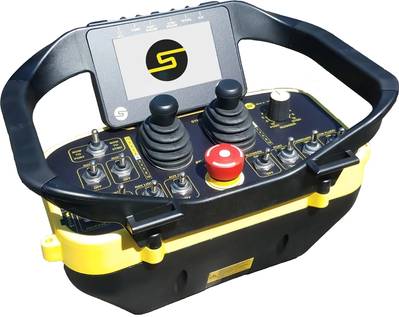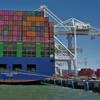USCG, ABS Approve Wireless Helm System for ATBs
U.S.-based autonomous marine systems developer Sea Machines announced on Tuesday that it has received class and regulatory approval to install its commercial wireless helm system aboard a class of U.S.-flag tugboats that support articulated tug-barge (ATB) sets, marking an industry first in wireless vessel control.
The U.S. Coast Guard (USCG) and American Bureau of Shipping (ABS) approval for Sea Machines’ SM200 follows a review of the Boston-based company’s technology and the system’s applications aboard ATB tugs, deeming the system satisfactory for shipboard installation and trials.
According to Sea Machines, the SM200 gives mariners control flexibility as the primary operator is no longer bound to a fixed control station. Wireless helm and propulsion control, as well as remote control of auxiliaries and payload equipment, free mariners from the wheelhouse to conduct operations from any location that offers the greatest visibility and safety.
The SM200’s developer said one significant advantage of using the system aboard an ATB is for connecting the tug in the barge notch. This Sea Machines system empowers the pilot to be in full control of the tugboat and connecting pins with a direct local view of the task, as compared to conventional methods that often rely on signals relayed from another crew member to the wheelhouse. Along with vessel maneuvering, the SM200 beltpack also enables wireless remote control of vessel equipment, including connection pins, pumps, winches, anchor windlasses and more, the company said.
Sea Machines CEO, Michael G. Johnson, expects the approval for ATB use will help launch the technology for use on board other vessel types. “This approval will unquestionably be the first of many to come for a wide variety of vessel types and is already fostering greater industry acceptance for this new realm of marine technology that boosts the capability, productivity and safety of vessel operations,” he said.
Sea Machines’ SM Series of products, which includes both the SM200 and SM300, provides marine operators a new era of remote, task-driven, computer-guided vessel control, bringing advanced autonomy within reach for small- and large-scale operations. SM products are suited for existing or new-build commercial vessels, including fireboats, commercial survey workboats, spill-response vessels, security/patrol/search-and-rescue craft, offshore wind support vessels, aquaculture workboats and others. Sea Machines is also a leading developer of advanced perception and navigation assistance technology for a range of vessel types, including container ships. The company is currently testing its perception and situational awareness technology aboard one of A.P. Moller-Maersk’s new-build ice-class container ships and has several other installations scheduled.
Shane Faucheux, president of Rio Hydraulics & Controls, Sea Machines’ Houston-based partner that helped manage the USCG and ABS review process, said, “Sea Machines and Rio Controls & Hydraulics offer solutions to operators that take full advantage of the evolution of technology to overcome inefficiencies and safety issues that currently exist in the marine industry.
“The advanced technology that exists within Rio’s steering and control systems integrated with the wireless, remote and/or the potential autonomy of the Sea Machines product suite not only offers customers the quality, durability and safety advantages of today’s technology, but also the 24/7 service and support of over 100+ technicians across eight locations within the Rio group.”













